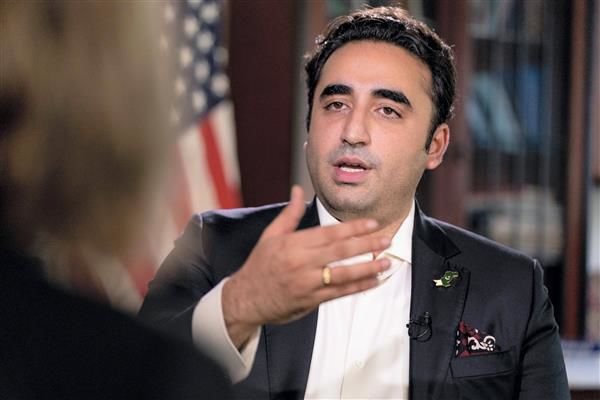Pakistan finds itself at a critical juncture following the recent general elections that resulted in a fractured mandate, leading to uncertainty and prolonged negotiations for the formation of a new government. With the Pakistan Muslim League-Nawaz (PML-N) and Pakistan Peoples Party (PPP) failing to reach a consensus on a power-sharing formula, the political landscape is shrouded in ambiguity, leaving the future governance of the country hanging in the balance. Bilawal Bhutto-Zardari, the chairman of PPP, has voiced concerns over the impasse in government formation, warning of a potential stalemate if there is no willingness to compromise among the political factions. His remarks come in the wake of unsuccessful talks between PPP and PML-N, where both parties have been unable to reconcile their differences and agree on key constitutional positions for a coalition government.
The PPP’s insistence on securing significant positions such as the presidency, chairman of the Senate, and speaker of the National Assembly reflects its desire for a substantial role in the government formation process. However, this demand has faced resistance from PML-N, leading to a deadlock in negotiations. Bilawal’s unwavering stance underscores the challenges inherent in forging political alliances and underscores the complexities of Pakistan’s democratic process.
The political stalemate has broader implications for Pakistan’s democracy and governance. Delays in government formation can undermine stability and hinder the country’s ability to address pressing issues and challenges. Moreover, it raises concerns about the efficacy of the electoral process and the ability of political parties to navigate the complexities of coalition politics.
Meanwhile, the Pakistan Tehreek-e-Insaf (PTI), led by former Prime Minister Imran Khan, has called for the resignation of Chief Election Commissioner Sikandar Sultan Raja, alleging that he failed to ensure free, fair, and transparent elections. The PTI’s demand for the CEC’s resignation reflects growing discontent with the electoral process and underscores the need for accountability and transparency in Pakistan’s democratic institutions.
The controversy surrounding the general elections, including allegations of widespread rigging and discrepancies, has cast a shadow over the legitimacy of the results and raised questions about the credibility of the electoral process. The prolonged uncertainty has fueled political tensions and heightened anxieties about the future direction of the country.
As Pakistan grapples with the challenges of government formation and political instability, there is a pressing need for dialogue, consensus-building, and compromise among the political parties. The interests of the nation must take precedence over partisan interests, and leaders must demonstrate a commitment to upholding democratic principles and strengthening democratic institutions.
The resolution of the political deadlock will require leadership, statesmanship, and a willingness to put the national interest above narrow political considerations. Only through constructive engagement and cooperation can Pakistan overcome the current impasse and chart a path towards stability, progress, and prosperity.
Pakistan stands at a crossroads, with the outcome of the government formation process shaping the country’s trajectory in the coming years. It is imperative that political leaders demonstrate vision, integrity, and a genuine commitment to democracy to navigate the challenges and uncertainties confronting the nation.














